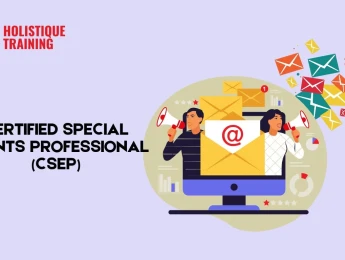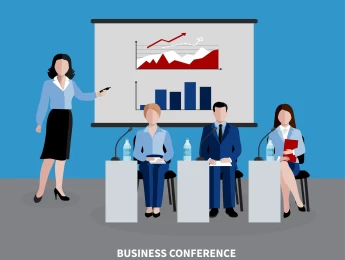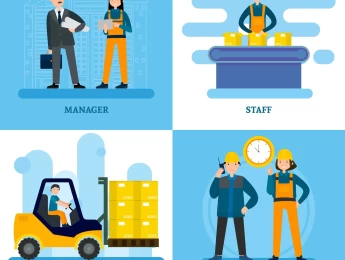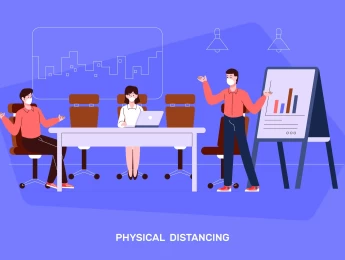In the realm of event planning, protocol commonly denotes the guidelines for proper conduct and etiquette to be observed when hosting or engaging with government officials, business owners or other leaders and representatives within organisations. Additionally, it may encompass aspects of cultural etiquette, which could change depending on your location.
Enrolling in a Protocol and event Management Training Course is essential for any business looking to incorporate events into its Public Relations and Marketing initiatives. Events offer unparalleled face-to-face communication opportunities, empowering business professionals to influence colleagues, clients, and investors significantly. The successful execution of well-managed events reflects positively on a business, enhancing its reputation and standing.
This course provides a comprehensive foundation in the fundamentals of event management, equipping participants with the skills needed to proficiently organise their events or closely oversee contractors responsible for event coordination.
Upon completion of this course, participants will be able to:
- Organise and arrange an event.
- Understand a range of events and grasp the essentials for their successful implementation.
- Learn about the cultural nuances between the different types of events to cater to your audience.
- Pinpoint the most fitting venues and activities for the events.
- Handle the media presence at events with assurance.
- Troubleshoot event plans and spot potential issues and provide mitigation tactics.
- Grasp the influence of events on your PR and marketing strategy.
- Gain practical advice on selecting venues, managing stages, and different types of dining.
- Acquire skills in guest care, high-level customer service and understand the protocol for VIPs
This course is designed for anyone who manages large-scale corporate events for businesses, government officials or charity organisations. It would be most beneficial for:
- Senior Events Managers
- Board Level Management
- Business Owners
- Venue Managers
- Marketing Professionals
- PR Professionals
- Media Representatives
- Catering Management
- Events Organisers
- Venue Decorators
- Branding Professionals
This course uses a variety of adult learning styles to aid full understanding and comprehension. Participants will review several corporate event plans and discover the do’s and don’ts of specific types of events. They’ll work together to plan an event in teams utilising their learned skills and professional planning models.
A group discussion will also involve sharing past experiences and uncovering the highest risks and mitigation techniques when handling large events in corporate venues.
Day 5 of each course is reserved for a Q&A session, which may occur off-site. For 10-day courses, this also applies to day 10
Section 1: Understanding Your Responsibilities
- Definitions of protocol and management.
- Duties and obligations of an event coordinator.
- Essential competencies for an event planner.
- The preparatory stage.
- Assessing your needs and linked risks.
- Choosing an event that matches the goal and audience.
- Creating an event blueprint, covering objectives, budget, and timetable.
Section 2: Setting the Scene
- Planning events throughout the year.
- Event schedule - how to plan the timings.
- Arrangements for various occasions.
- Corporate ethos for guaranteed success.
- Compiling the proposal.
- Understanding the rule of reciprocity when dealing with charity events.
- Props and venue layout.
Section 3: Risk Management & Preparation
- Managing the event stage and order of speakers.
- Sets, staging, and corporate branding.
- Catering, entertainment, and music based on cultural requirements.
- Ensuring safety and risk management.
- Dietary requirements and other health and safety information.
- Technology in and risk management.
- Frequently encountered errors and how to fix them.
Section 4: Social Media & Advertising for Your Event
- Extending media invitations - invites and press announcements.
- Using social media to advertise your event.
- The media office, press kit, and tokens.
- In-house media and staff preparation.
- Videography and photography for future advertising.
Section 5: Public Relations & the Transition Period
- Conducting interviews and providing information to interviewees.
- Finding the right contacts for your events.
- An insight into public relations and the integration of events.
- The PR transition process and the six-point PR strategy.
- The function of events in public relations and marketing.
Section 6: Wrapping Up Your Event
- Collaborating with dignitaries and other guests.
- Welcoming and saying goodbye in the right way.
- The after-effects of your event.
- Analysis and feedback generation.
- Enduring impact and lessons learned.
- Methods for achieving the WOW factor for future events.
- Task lists and scale down.
Upon successful completion of this training course, delegates will be awarded a Holistique Training Certificate of Completion. For those who attend and complete the online training course, a Holistique Training e-Certificate will be provided.
Holistique Training Certificates are accredited by the British Assessment Council (BAC) and The CPD Certification Service (CPD), and are certified under ISO 9001, ISO 21001, and ISO 29993 standards.
CPD credits for this course are granted by our Certificates and will be reflected on the Holistique Training Certificate of Completion. In accordance with the standards of The CPD Certification Service, one CPD credit is awarded per hour of course attendance. A maximum of 50 CPD credits can be claimed for any single course we currently offer.
- Course Code IND15-115
- Course Format Classroom, Online,
- Duration 5 days














